 W
WJosip Broz, commonly known as Tito, was a Yugoslav communist revolutionary and statesman, serving in various roles from 1943 until his death in 1980. During World War II, he was the leader of the Partisans, often regarded as the most effective resistance movement in occupied Europe. He also served as the president of the Socialist Federal Republic of Yugoslavia from 14 January 1953 until his death on 4 May 1980.
 W
WAmvrosy Maksymilianovych Buchma was a Soviet and Ukrainian stage and film actor, director and pedagogue. He stepped onto the stage professionally for the first time in 1905 with the Ruska Besida Theatre.
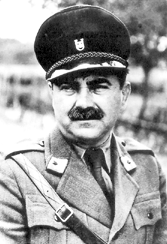 W
WMile Budak was a Croatian politician and writer best known as one of the chief ideologists of the Croatian fascist Ustaša movement, which ruled the Independent State of Croatia during World War II in Yugoslavia from 1941–45 and waged a genocidal campaign of extermination against its Roma and Jewish population, and of extermination, expulsion and religious conversion against its Serb population.
 W
WFranz Carl Heimito, Ritter von Doderer; known as Heimito von Doderer was an Austrian writer. He was nominated for the Nobel Prize in Literature five times.
 W
WEngelbert Dollfuss was an Austrian politician who served as Chancellor of Austria between 1932 and 1934. Having served as Minister for Forests and Agriculture, he ascended to Federal Chancellor in 1932 in the midst of a crisis for the conservative government. In early 1933, he dissolved parliament and assumed dictatorial powers. Suppressing the Socialist movement in February 1934 during the Austrian Civil War and later banning the Austrian Nazi Party, he cemented the rule of "Austrofascism" through the authoritarian First of May Constitution. Dollfuss was assassinated as part of a failed coup attempt by Nazi agents in 1934. His successor Kurt Schuschnigg maintained the regime until Adolf Hitler's annexation of Austria in 1938.
 W
WJakob Gapp was an Austrian Roman Catholic priest and a professed member from the Marianists. Gapp first served as a soldier on the Italian front during World War I at a point in his life where his religious convictions were not of high importance, though his return home from a prisoner of war camp saw him develop socialist views that soon bought him into contact with the Marianists whom he later joined. After studies and ordination he was assigned in Austria as a teacher, where he became noted for his vehement opposition to the Nazi regime; he deemed Nazism as being some warped political tool to create division which was also incompatible with the faith.
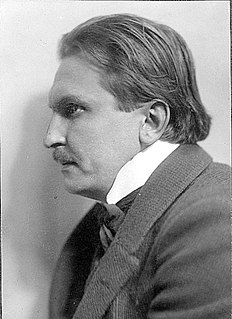 W
WGéza Gyóni was a Hungarian war poet. He died in a Russian prisoner of war camp during the First World War.
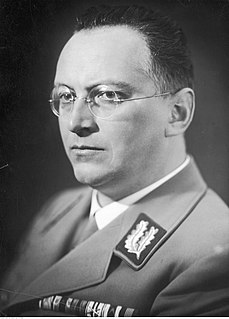 W
WKonrad Ernst Eduard Henlein was a leading Sudeten German politician in Czechoslovakia. Upon the German occupation in October 1938 he joined the Nazi Party as well as the SS and was appointed Gauleiter of the Sudetenland. He was appointed Reichsstatthalter of the Reichsgau Sudetenland upon its formation on 1 May 1939.
 W
WGeorges Kars was a Czech painter known for his landscapes and nude paintings.
 W
WBéla Kun was a Hungarian communist activist and politician who governed the Hungarian Soviet Republic in 1919. After attending Franz Joseph University at Kolozsvár, Kun worked as a journalist before the First World War. He served in the Austro-Hungarian Army and was captured by the Imperial Russian Army in 1916, after which he was sent to a prisoner-of-war camp in the Urals. Kun embraced communist ideas during his time in Russia, and in 1918 he co-founded a Hungarian arm of the Russian Communist Party in Moscow. He befriended Vladimir Lenin and fought for the Bolsheviks in the Russian Civil War.
 W
WDmytro Levytsky (1877–1942) was a lawyer and major political figure in western Ukraine between the two world wars. Between 1925 and 1935 he headed the Ukrainian National Democratic Alliance, the largest Ukrainian political party in western Ukraine, and served as the chief of the Ukrainian delegation within the Polish parliament.
 W
WBernard Stanisław Mond (Spanier) was a Jewish general of the Polish Army in the interwar period. He fought in the First World War, Polish–Ukrainian War, Polish–Soviet War and Second World War.
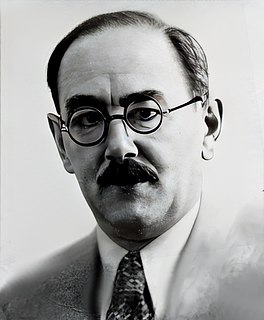 W
WImre Nagy was a Hungarian communist politician who served as Chairman of the Council of Ministers of the Hungarian People's Republic from 1953 to 1955. In 1956 Nagy became leader of the Hungarian Revolution of 1956 against the Soviet-backed government, for which he was sentenced to death and executed two years later.
 W
WGeorg Wilhelm Pabst was an Austrian film director and screenwriter. He started as an actor and theater director, before becoming one of the most influential German-language filmmakers during the Weimar Republic.
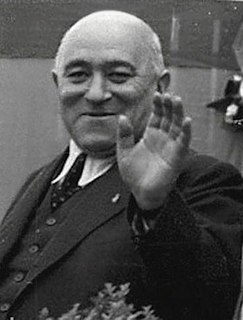 W
WMátyás Rákosi was a Hungarian communist politician who was the de facto leader of Hungary from 1947 to 1956. He served first as General Secretary of the Hungarian Communist Party from 1945 to 1948 and then as General Secretary of the Hungarian Working People's Party from 1948 to 1956.
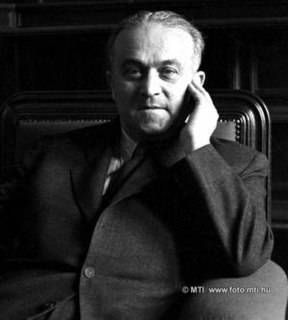 W
WDr. István Ries was a Hungarian politician and jurist, who served as Minister of Justice between 1945 and 1950, during the transition period to the communism in Hungary.
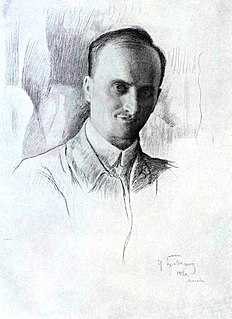 W
WEndre Rudnyánszky was a Hungarian lawyer, military officer, and communist. He held leadership posts in international and Hungarian communist organizations until his disappearance in 1921.
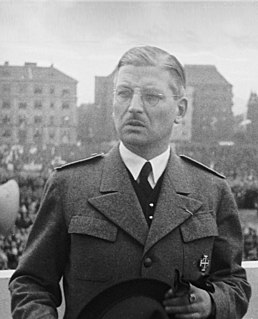 W
WKurt Alois Josef Johann Schuschnigg was an Austrian Fatherland Front politician who was the Chancellor of the Federal State of Austria from the 1934 assassination of his predecessor Engelbert Dollfuss until the 1938 Anschluss with Nazi Germany. Although Schuschnigg accepted that Austria was a "German state" and that Austrians were Germans, he was strongly opposed to Adolf Hitler's goal to absorb Austria into the Third Reich and wished for it to remain independent.
 W
WEndre Sík was a Hungarian historian, politician, Minister of Foreign Affairs between 1958 and 1961. He was the younger brother of the priest Sándor Sík who was also a poet and piarist teacher.
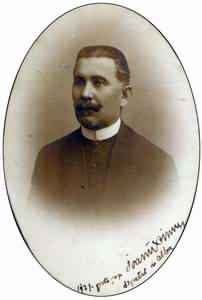 W
WIoan Simu was an Austro-Hungarian-born Romanian Greek-Catholic priest and politician.
 W
WKároly Solymár was a Hungarian hurdler. He competed in the men's 110 metres hurdles at the 1912 Summer Olympics.
Tivadar Soros was a Hungarian lawyer, author and editor. He is best known for being the father of billionaire George Soros, and engineer Paul Soros.
 W
WAloysius Viktor Stepinac was a Yugoslav Croat prelate of the Catholic Church. A cardinal, Stepinac served as Archbishop of Zagreb from 1937 until his death, a period which included the fascist rule of the Ustaše over the Axis puppet state the Independent State of Croatia from 1941 to 1945 during World War II. He was tried by the communist Yugoslav government after the war and convicted of treason and collaboration with the Ustaše regime. The trial was depicted in the West as a typical communist "show trial", and was described by The New York Times as biased against the archbishop. However, Professor John Van Antwerp Fine Jr. claims the trial was "carried out with proper legal procedure". In a verdict that polarized public opinion both in Yugoslavia and beyond, the Yugoslav authorities found him guilty on the charge of high treason, as well as complicity in the forced conversions of Orthodox Serbs to Catholicism. Stepinac advised individual priests to admit Orthodox believers to the Catholic Church if their lives were in danger, such that this conversion had no validity, allowing them to return to their faith once the danger passed. He was sentenced to 16 years in prison, but served only five at Lepoglava before being transferred to house arrest with his movements confined to his home parish of Krašić.
 W
WRaoul Stojsavljevic was an Austro-Hungarian World War I flying ace credited with ten aerial victories. His later career took him to postwar service in aviation both military and civilian. His younger sister was the painter Mileva Roller and her husband was the artist Alfred Roller (1864–1935).
 W
WLudvík Svoboda was a Czech general and politician. He fought in both World Wars, for which he was regarded as a national hero, and he later served as President of Czechoslovakia from 1968 to 1975.
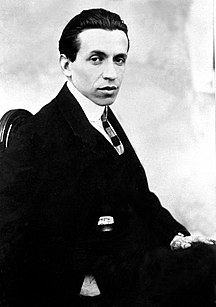 W
WTibor Szamuely was a Hungarian politician and journalist who was Deputy People's Commissar of War and People's Commissar of Public Education during the Hungarian Soviet Republic.